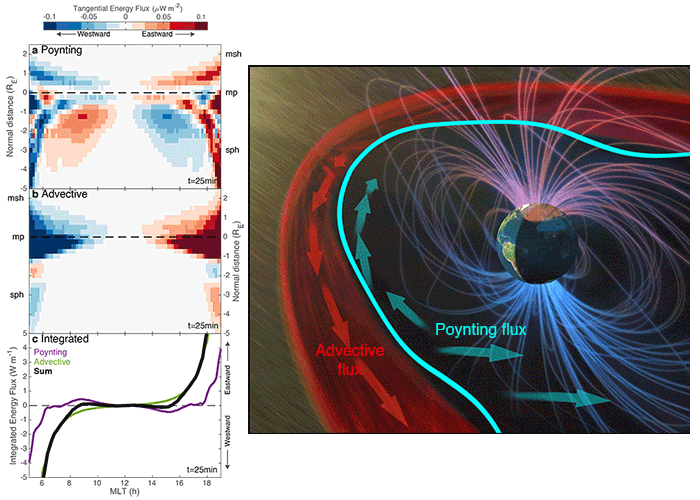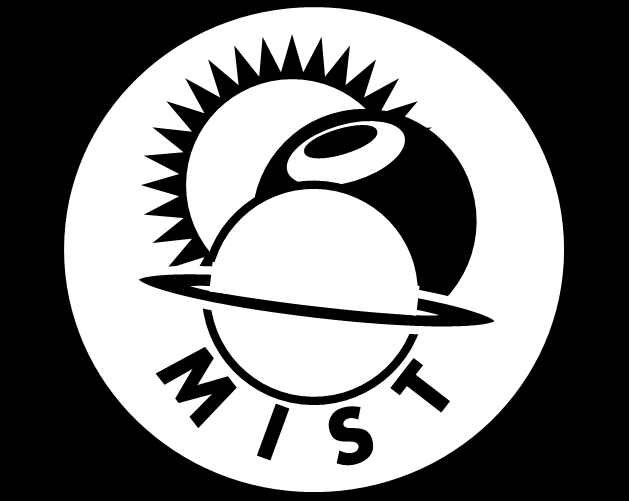MIST
Magnetosphere, Ionosphere and Solar-Terrestrial
Magnetopause ripples going against the flow form azimuthally stationary surface waves
By Martin Archer (Imperial College London)
Like waves on water, surface waves on the outer boundary of Earth’s magnetosphere, the magnetopause are thought to always travel in the direction of the driving solar wind. Indeed, many observations of the global dynamics of the magnetosphere show that disturbances travel tailward, i.e. with the wind, for both steady and impulsive driving. However, we find that the lowest-frequency magnetopause surface waves, which form standing waves along the terrestrial magnetic field, actually propagate against the flow outside the boundary.
Multi-spacecraft observations of the resonant surface waves excited by an isolated magnetosheath jet show that the speed of the waves’ energy flow is comparable, but in opposition, to the magnetosheath velocity. Global MHD simulations of the magnetospheric response to a pressure pulse reveal the inward/outward boundary motion is azimuthally stationary across a wide local time range (09-15h). This is despite significant flows being present that should otherwise advect the waves tailward. We show in the figure this is possible since the surface waves’ Poynting flux (panel a) exactly balances the flow's advective effect (panel b) leading to no net energy flux (panel c) over this local time range. Further down the equatorial flanks, however, advection dominates hence the waves travel downtail, seeding fluctuations at the resonant frequency which subsequently grow in amplitude via the Kelvin-Helmholtz instability. Our findings are also in excellent agreement with simple analytic theory. We, therefore, illustrate our overall conclusions in the right panel of the figure.
These unexpected results reveal that magnetopause surface waves can persist longer than was previously expected, which will have implications upon radiation belt, ionospheric, and auroral dynamics. Furthermore, since surface waves drive dynamics in many space, astrophysical and laboratory plasma systems, the results made possible by in situ measurements, may have applications to other environments where these are not possible, for example coronal loops.

Please see paper for full details: Archer, M.O., Hartinger, M.D., Plaschke, F. et al. Magnetopause ripples going against the flow form azimuthally stationary surface waves. Nat Commun 12, 5697 (2021). https://doi.org/10.1038/s41467-021-25923-7
